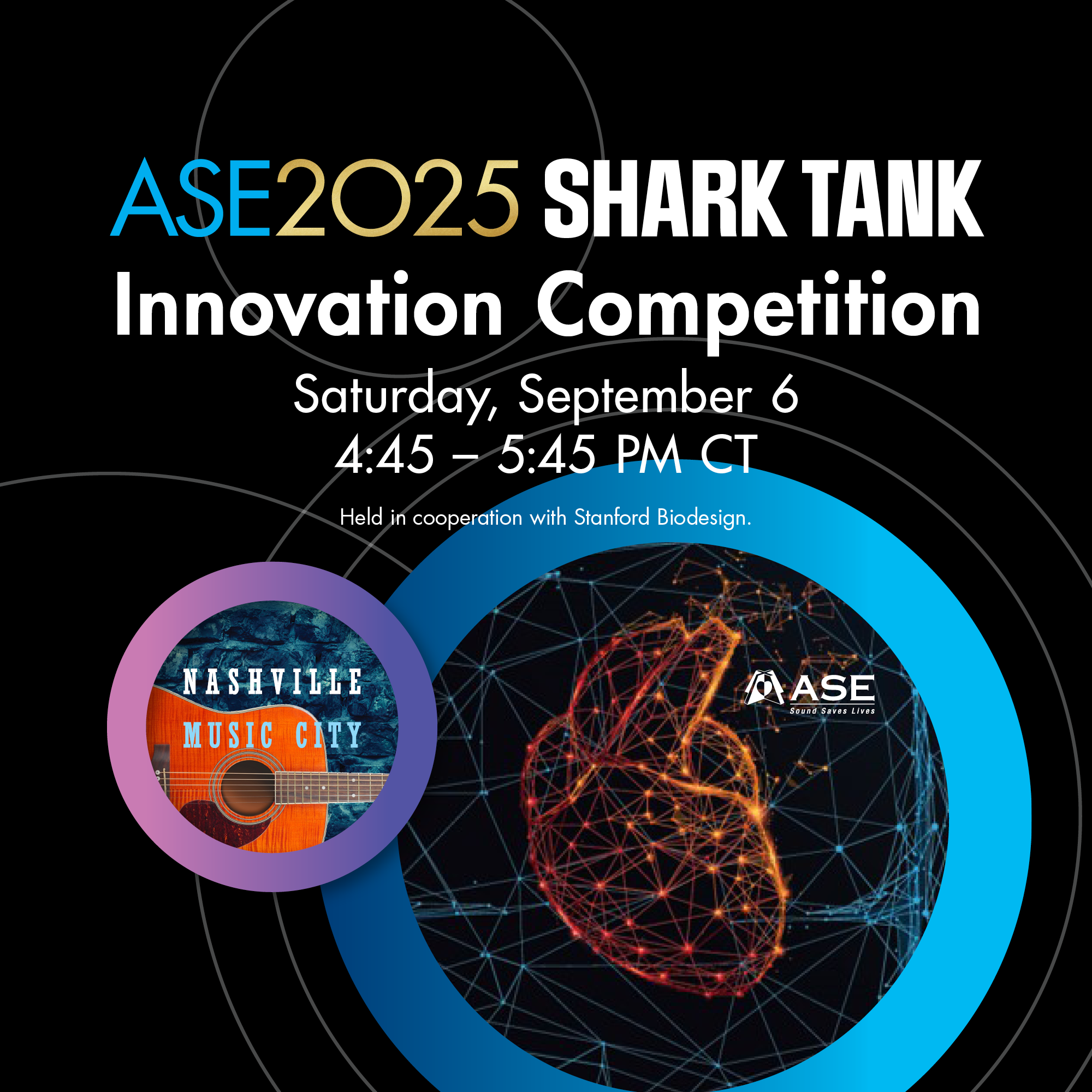
FOR IMMEDIATE RELEASE
Contact: Angie Porter
919-297-7152
[email protected]
Artificial Intelligence in Cardiovascular Ultrasound Imaging Research Highlighted at ASE 2024
 (DURHAM, NC, June 14, 2024)—Artificial intelligence (AI) continues to transform the field of cardiovascular ultrasound imaging, and AI-focused research is a prominent topic at the American Society of Echocardiography’s 35th Annual Scientific Sessions, taking place June 14-16, 2024, in Portland, Oregon.
(DURHAM, NC, June 14, 2024)—Artificial intelligence (AI) continues to transform the field of cardiovascular ultrasound imaging, and AI-focused research is a prominent topic at the American Society of Echocardiography’s 35th Annual Scientific Sessions, taking place June 14-16, 2024, in Portland, Oregon.
This year’s meeting is aptly named Innovations in Diagnosis and Beyond and will feature more than 450 abstract presentations showcasing cutting-edge research on the latest advances in cardiovascular ultrasound and cases illustrating breakthroughs in patient care.
Two research studies being presented on Saturday, June 15, examined a Food and Drug Administration (FDA)-cleared AI tool with the potential to streamline echocardiography exams and better identify patients with heart failure with preserved ejection fraction (HFpEF).
The first research study, titled “Real-World Clinical Validation of an Artificial Intelligence Pipeline for Automated Assessment of LV Function,” investigated the potential of AI-guided software in accurately and consistently measuring left ventricular ejection fraction (LVEF) and global longitudinal strain (GLS), which are crucial in the diagnosis and management in patients with HFpEF.
Current practices often require sonographers to acquire multiple examples of the same view of the heart during an echocardiography exam and then retrospectively measure the most optimal image. This can lead to increased exam times, musculoskeletal injuries, and measurement variabilities. To address these challenges, researchers used AI technology to examine nearly 150 clinical echocardiograms and assess the effectiveness of an automated AI-driven process in providing reliable measurements.
Research findings indicated that an AI algorithm that automatically identifies images and provides GLS and LVEF in HFpEF patients may be a valuable tool in addressing sonographer and physician workflow, but also emphasized the need for further efforts to increase agreement between manual and automated echocardiography measurements.
“The echocardiography exam workflow presents a promising opportunity for AI to streamline processes and improve patient diagnoses,” said the study’s lead author Madeline Jankowski, BS, RDCS, ACS, FASE, a cardiac sonographer and clinical research associate at Northwestern University in Chicago. “At Northwestern Medicine, our collaboration involves a multidisciplinary team of physician and sonographer experts who evaluate emerging AI software for its diagnostic capabilities and utility within a busy healthcare institution. Given the complexity of incorporating AI into echocardiography, it remains crucial to include all stakeholders in ongoing discussions to address workflow and quality issues effectively.”
In the second study, titled “AI-Based Detection of Heart Failure with Preserved Ejection Fraction,” researchers also aimed to test the capabilities of AI technology by evaluating nearly 700 clinical echocardiograms during a seven-day period. The novel AI software used a single four-chamber apical transthoracic echocardiogram to identify patients with HFpEF.
While the findings emphasized the need for additional testing to clarify diagnoses, especially in cases where certain parameters may impact the precision of existing tools, they also demonstrated comparable accuracy to established diagnostic tools in recognizing patients necessitating further evaluation for HFpEF. The AI software helped identify 68 percent more potential cases of HFpEF in patients undergoing routine echocardiograms.
“HFpEF is the most prevalent form of heart failure globally. However, pinpointing it can be difficult due to its varying presentation in patients,” said the study’s lead author Amogh Karnik, MD, MSc, a cardiovascular disease fellow at the McGaw Medical Center at Northwestern University. “In this study, we assessed a novel AI tool designed to detect signs of HFpEF by analyzing ultrasound images of the heart. Such a tool holds promise for early diagnosis of HFpEF, and can help facilitate earlier initiation of treatment.”
Learn more about ASE 2024 and download the conference’s final event program at ASEScientificSessions.org.
About American Society of Echocardiography
The American Society of Echocardiography (ASE) is the Society for Cardiovascular Ultrasound Professionals™. ASE is the largest global organization for cardiovascular ultrasound imaging serving physicians, sonographers, nurses, veterinarians, and scientists and as such is the leader and advocate, setting practice standards and guidelines for the field. The Society is committed to advancing cardiovascular ultrasound to improve lives. For more information visit ASE’s website ASEcho.org or social media pages on Facebook, X (formerly Twitter), LinkedIn, or Instagram.
###
Publish date
June 14, 2024
Topic
- Events
- Research
Related News

Announcements

Press Release

Announcements
